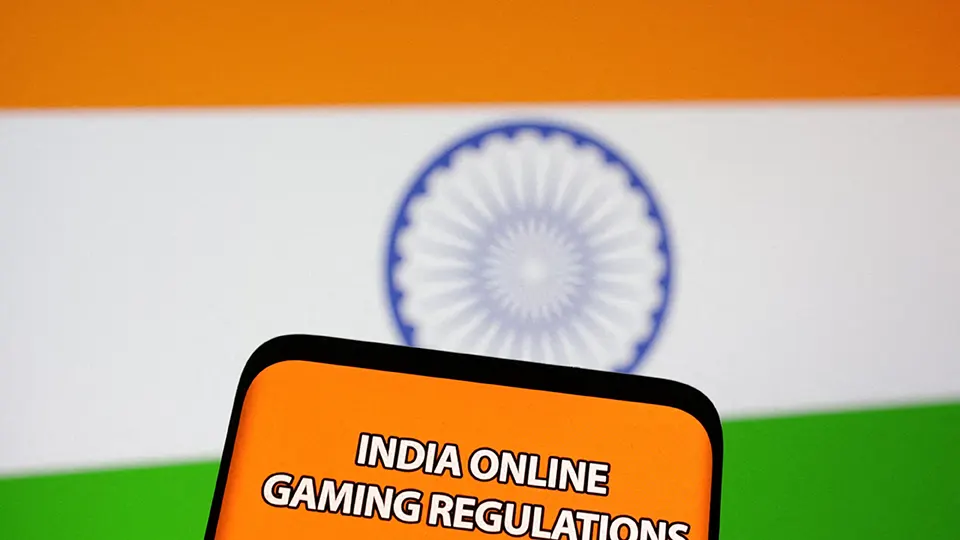The Indian online gaming industry is undergoing a major transformation as the government implements strict real money gaming regulation in India. This move aims to balance player safety with the growth of a booming digital entertainment sector. With millions of gamers affected and companies adjusting to new compliance requirements, the regulation has far-reaching implications for revenue, employment, and innovation. Globally, India’s approach contrasts with more flexible regulatory frameworks in countries like the UK and Canada, sparking discussions about the future of safe and responsible online gaming.

In a significant move, the Indian government has instituted a ban on real money gaming. This regulation aims to reshape the online gaming landscape, focusing on protecting consumers and regulating the online gaming industry. As a result, the extensive reach of the gaming sector is now facing a critical challenge.
Reasoning Behind the Decision
The motivations behind this high-profile decision include:
- Consumer Protection: Aimed at safeguarding individuals from potential gambling addiction and financial exploitation.
- Regulatory Compliance: Ensuring that gaming platforms adhere to standardized practices.
- Economic Concerns: Addressing the potential societal costs associated with uncontrolled gambling activities.
Immediate Reactions from Stakeholders
The effects of the gambling ban have stirred diverse responses from various parties:
| Stakeholder | Reactions |
|---|---|
| Gamers | Expressed disappointment and concern over limited gaming options. |
| Gaming Companies | Professionals in the sector anticipate economic fallout, with many predicting significant revenue losses. |
| Regulators | Emphasized the importance of maintaining oversight to protect players and minimize risks. |
The imminent online gaming industry collapse in India is becoming a talking point as players and stakeholders navigate the new regulations amidst ongoing debates on the future of real money gaming regulation in India.
Implications for the Gaming Industry
Short-term Effects on Revenue
The real money gaming regulation in India has ushered in immediate changes, particularly concerning revenue streams for gaming companies. Some of the short-term impacts include:
- A noticeable dip in profit margins as companies adapt to stringent regulations.
- Increased costs due to compliance measures and legal consultations.
- Potential short-lived spikes in player acquisition before the enforcement of tighter rules.
Long-term Consequences for Companies
As the effects of gambling ban continue to unfold, the long-term implications could reshape the industry landscape significantly:
- Long-lasting changes to business models focusing more on compliance and less on aggressive growth.
- A contraction of the market may occur as players turn to unregulated alternatives.
- Companies may innovate in service offerings to retain customer loyalty amidst challenges.
Impact on Employment in the Sector
The ongoing transformation of the online gaming industry collapse in India brings with it serious ramifications for employment:
- Job layoffs in companies unable to pivot quickly to new regulations.
- Emergence of new roles focused on compliance and ethical gaming practices.
- Opportunities for growth in tech sectors supporting regulated gaming platforms.
Global Perspectives on Real Money Gaming
Comparative Analysis with Other Countries
Apacaff | Real money gaming regulation in India stands in stark contrast to various countries around the world. While nations like the UK and Canada have embraced a balanced regulatory approach, allowing for a flourishing online gaming market, India grapples with challenges exacerbated by the recent effects of gambling bans. Key differences include:
- Regulatory Flexibility: Countries with legal frameworks tend to support sustainable growth in the gaming sector.
- Market Confidence: Legalization often leads to increased trust and participation among players.
- Financial Contributions: Tax revenues from regulated gambling activities benefit public services.
Best Practices from Global Markets
Learning from the success of other markets can offer valuable insights for India’s online gaming landscape. Consider the following best practices:
- Establishing clear guidelines for operators to ensure consumer protection.
- Implementing responsible gaming initiatives to promote safe gambling habits.
- Utilizing technology for effective monitoring and compliance checks.
Regulatory Frameworks Across Borders
Examining the regulatory frameworks of diverse nations shows a varied approach to real money gaming. In India, the online gaming industry collapse can largely be attributed to vague laws and a lack of coherent policy. A well-defined regulatory system can:
- Foster innovation and growth in the online gaming sector.
- Create job opportunities and stimulate the economy.
- Reduce illegal gambling through enhanced oversight.
It’s evident that a comprehensive and supportive regulatory environment is essential for the future of real money gaming in India.
Consumer Behavior Changes
Shifts in Player Preferences
The landscape of gaming is constantly evolving, with players exhibiting notable changes in their preferences. Factors such as the real money gaming regulation in India and the effects of gambling ban have significantly influenced these shifts:
- Players are now gravitating towards games that provide skill-based elements rather than purely chance-driven experiences.
- Mobile gaming is surging in popularity as accessibility becomes a primary concern.
- A growing preference for social and interactive gaming experiences fosters community engagement.
Rise of Alternative Gaming Options
The ongoing transformation has given rise to various alternative gaming avenues as the traditional online gaming industry faces challenges:
- In response to the online gaming industry collapse in India, many players are exploring esports, fantasy sports, and skill-based platforms.
- Players are increasingly turning to international platforms that provide a broader range of games.
- New entrants are continually launching innovative games that combine entertainment with competitive elements, drawing in diverse audiences.
Impact on Online Gaming Communities
These changes have a profound effect on online gaming communities:
- Communities are diversifying as players seek out forums that align with their changing preferences.
- The sense of belonging is amplified as players gather on platforms with shared interests, leading to heightened engagement.
- Community-driven initiatives are emerging to navigate the impacts of the gambling ban, ensuring the preservation of gaming culture.
Legal Challenges and Enforcement

Potential for Legal Battles
The landscape of real money gaming regulation in India is fraught with possible legal disputes. As authorities strive to enforce gambling laws, various stakeholders, including operators and players, may find themselves embroiled in litigation. Key factors influencing these potential confrontations include:
- Ambiguous laws that create uncertainty for gaming operators.
- The clash between federal and state regulations, which can lead to conflicting interpretations.
- Public sentiment regarding the social implications of gambling, influencing legislative actions.
💡 Understanding these dynamics is crucial for businesses navigating the gaming sector.
Government Enforcement Strategies
To tackle the challenges presented by gambling, the government employs several enforcement strategies:
- Setting up regulatory bodies to oversee online platforms.
- Conducting regular audits and reviews of gaming operators to ensure compliance.
- Imposing penalties on illegal gambling activities to deter violations.
✅ These measures aim to create a safer and more regulated environment for players in the online gaming industry.
Historical Context of Gaming Regulations
The effects of gambling ban in India have significantly shaped the current status of the online gaming sector. Initially, gaming regulations were minimal, allowing unregulated growth. However, following numerous concerns over responsible gambling, the need for regulatory frameworks became evident. Here’s a brief overview:
| Period | Regulatory Milestone |
|---|---|
| Pre-2000s | Minimal oversight; rapid industry expansion. |
| 2000-2010 | Emergence of state-level regulations. |
| 2010-Present | Calls for comprehensive national regulations amid a potential online gaming industry collapse in India. |
⚠️ The evolution of these laws continues to influence the operational landscape of the gaming industry, emphasizing the importance of compliance and regulation.
Experts’ Opinions and Predictions
Industry Expert Insights
In the rapidly evolving landscape of real money gaming regulation in India, industry insiders emphasize the need for a balanced framework. Here’s what they have to say:
- Comprehensive regulations are essential to protect consumers and ensure a fair gaming environment.
- Transparency in operations will boost public confidence in the online gaming sector.
- Expert projections suggest that a well-structured legal framework could lead to significant revenue growth in the gaming industry.
Future of Real Money Gaming in India
The future of the real money gaming sector looks promising, yet uncertain. Experts anticipate several trends:
- Integration of advanced technology like blockchain to enhance security and fairness.
- Growth in mobile gaming, catering to younger demographics who prefer accessible gaming options.
- Increased collaboration between gaming companies and regulatory bodies to create a viable operating environment.
Potential Policy Changes
Upcoming changes in legislation could have drastic effects on the industry:
- Effects of a Gambling Ban: A comprehensive ban may lead to a surge in underground gaming operations and reduce government revenue.
- Online Gaming Industry Collapse in India: Without adequate regulations, the potential for collapse exists, leading to job losses and economic downturns.
Collectively, these insights imply that strategic measures are imperative to safeguard the future of real money gaming in India.
Conclusion
Recap of Key Points
In summarizing the discussion on real money gaming regulation in India, several pivotal aspects have emerged:
- Understanding the implications of the effects of gambling ban on the online gaming community.
- The potential repercussions of an online gaming industry collapse in India.
- The need for a balanced regulatory framework that supports entertainment while ensuring player protection and integrity.
Final Thoughts on the Industry’s Future
The future of the gaming sector in India is poised at a crossroads. With real money gaming regulation in India still evolving, stakeholders must navigate the complexities of legislation and societal norms. The potential for growth remains robust, provided that a sustainable and transparent regulatory environment is cultivated.
Call to Action for Stakeholders
As we look ahead, it’s imperative for all stakeholders in the gaming ecosystem to:
- Engage in open dialogues about the effects of gambling ban on both players and operators.
- Collaborate on developing comprehensive regulations that protect consumers while fostering innovation.
- Invest in responsible gaming initiatives that enhance player safety and trust.
Together, we can ensure a thriving and responsible online gaming landscape in India. Let’s seize this moment to steer the industry towards a brighter future!












